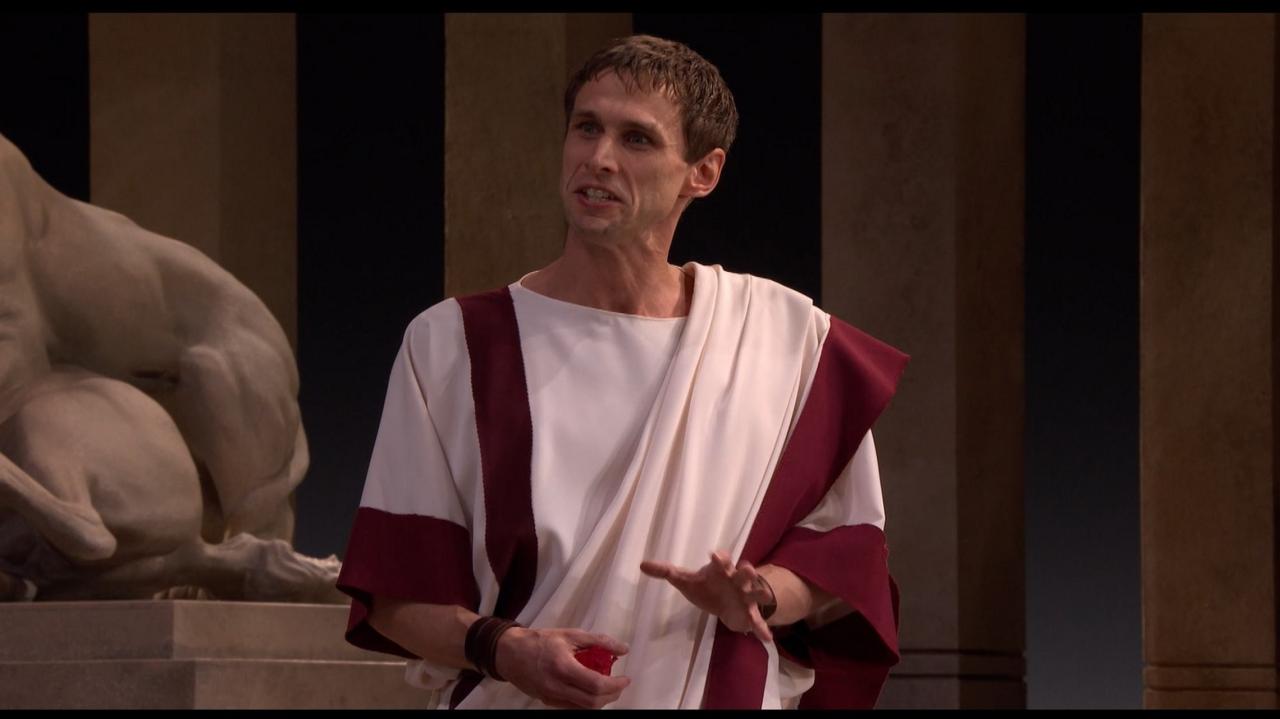How does Brutus respond to Cassius’s attack on Caesar? This question lies at the heart of one of Shakespeare’s most compelling and enduring tragedies, Julius Caesar. Brutus’s response to Cassius’s accusations against Caesar reveals a complex interplay of personal loyalty, political duty, and internal conflict.
As Cassius’s rhetoric inflames the Roman populace, Brutus grapples with the weighty decision of whether to join the conspiracy against Caesar. His soliloquies and interactions with others lay bare the turmoil within his soul, as he weighs his love for Caesar against the perceived threat to the republic.
Brutus’s Response to Cassius’s Attack on Caesar: How Does Brutus Respond To Cassius’s Attack On Caesar

Brutus, a close friend and trusted ally of Julius Caesar, is initially shocked and angered by Cassius’s accusations against him. He is torn between his loyalty to Caesar and his sense of duty to Rome. Brutus believes that Caesar is a great man who has done much for Rome, but he also recognizes that Caesar’s ambition is a threat to the republic.
Brutus’s Internal Conflict
Brutus is torn between his personal feelings for Caesar and his belief that Caesar is a threat to Rome. He wrestles with the decision of whether to join the conspiracy against Caesar or to remain loyal to his friend. Brutus’s internal conflict is reflected in his soliloquies and interactions with others.
Brutus’s Decision to Join the Conspiracy
Brutus ultimately decides to join the conspiracy against Caesar. He is persuaded by Cassius’s arguments that Caesar is a tyrant who must be removed from power. Brutus also believes that it is his duty to protect the republic from Caesar’s ambition.
Brutus’s Role in Caesar’s Assassination
Brutus plays a leading role in the assassination of Caesar. He is one of the conspirators who stabs Caesar to death. Brutus’s actions during the assassination reveal his character and motivations. He is a man of honor who believes that he is doing what is right for Rome.
Brutus’s Justification for the Assassination
Brutus justifies the assassination of Caesar by arguing that Caesar was a tyrant who posed a threat to the republic. He believes that Caesar’s death was necessary to protect the freedom and liberty of the Roman people.
Brutus’s Response to the Aftermath of Caesar’s Assassination, How does brutus respond to cassius’s attack on caesar
Brutus is horrified by the chaos and violence that follows Caesar’s assassination. He realizes that he has unleashed a force that he cannot control. Brutus’s actions and decisions in the aftermath of the assassination reveal his character and political beliefs.
FAQ Guide
What is Brutus’s initial reaction to Cassius’s attack on Caesar?
Brutus is initially shocked and disbelieving, but as Cassius presents his evidence, Brutus begins to question his loyalty to Caesar.
How does Brutus’s internal conflict manifest itself?
Brutus’s internal conflict is evident in his soliloquies, where he wrestles with his personal feelings for Caesar and his duty to the republic.
What factors influence Brutus’s decision to join the conspiracy?
Brutus’s decision is influenced by his belief in the republic, his sense of honor, and his fear of Caesar’s ambition.
How does Brutus justify the assassination of Caesar?
Brutus justifies the assassination by arguing that Caesar’s ambition posed a threat to the republic and that his death was necessary to preserve Roman liberty.
What is Brutus’s response to the aftermath of Caesar’s assassination?
Brutus’s response to the chaos and violence that follows Caesar’s assassination reveals his idealism and his commitment to the republic, even in the face of adversity.

